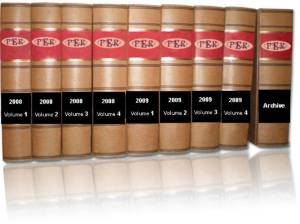Potchefstroom Electronic Law Journal
ISSN 1727-3781
2006 Volume 9 No 2
27 September 2006
Other Volumes
Editorial
This second edition of 2006 offers an interesting range of topics, in this instance all covered by South African authors.
In her analysis of the "institutions supporting constitutional democracy" established by the South African Constitution, Professor Christina Murray of the University of Cape Town argues that thethe institutions share the roles of providing a check on government and of contributing to transformation. The newness of democracy, the great demands on the state and the political dominance of the governing party in South Africa are identified as the greatest challenges of the institutions discussed.
Professor Jacques de Ville of the University of the Western Cape reflects upon David Dyzenhaus' deferential model of judicial review against the background of Jacques Derrida's understanding of the paradoxes inherent in the notions of justice, democracy and the gift, and concludes that judicial review requires some rethinking due to the limitations of the conception of justice.
Professor Tana Pistorius of the University of South Africa points out the disparate forms of copyright protection for digital and analogue media, and argues, with reference to the importance of copyright law for development, for adherence to the principle of functional equivalence in the implementation of the WIPO Copyright Treaty.
Against the background of the constitutional requirements for public procurement, Dr Phoebe Bolton of the University of the Western Cape considers South African legislation which allows for exceptions to the use of state tendering. With reference inter alia to relevant international instruments, the author provides guidance for the interpretation of the legislation concerned.
Mr Neels Kilian of the Tshwane University of Technology engages the question whether incorporeal things could possess characteristics of value similar to corporeal things. This he does with reference to South African judicial precedent, the sale of a business and the principles of Roman Law.
In her note Debra Horsten of the Potchefstroom Campus of the North-West University assesses the effectiveness of the South African Human Rights Commission's annual reports on the implementation of socio-economic rights as a mechanism for the improvement of good governance.
This issue was edited by Ms. Anl du Plessis.
Francois Venter
Editor
Guest Editor: Ms. Anél du Plessis

Articles
Notes
|
1. |

